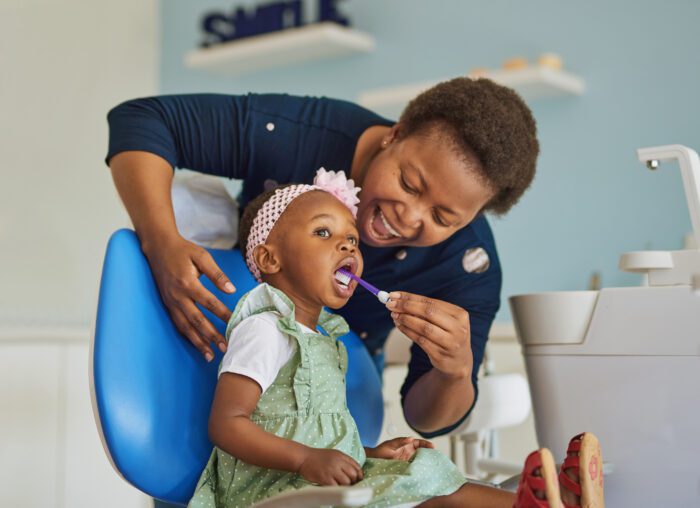Pediatric dentistry is a specialized branch of dental care focused on the oral health of infants, children, and adolescents. It’s about more than just tiny teeth. It’s about guiding children through healthy dental habits that will last a lifetime. Many parents wonder when they should begin taking their child to the dentist. The answer might be earlier than you think. Starting dental visits at the right time plays a vital role in preventing cavities, monitoring oral development, and easing children into a lifetime of positive dental experiences.
The First Visit
According to the American Academy of Pediatric Dentistry (AAPD), a child should visit the dentist by their first birthday or within six months of the eruption of their first tooth, whichever comes first. This early appointment may seem premature, especially when your child only has one or two teeth, but it’s actually the perfect time to begin.
The initial visit isn’t about performing complex procedures. Instead, it’s focused on education and prevention. The pediatric dentist will examine your child’s mouth to ensure everything is developing normally and will provide guidance on teething, proper brushing techniques, nutrition, and how to avoid habits that could harm your child’s oral health, such as prolonged pacifier use or thumb sucking.
Why Early Dental Visits Matter
Dental decay can begin as soon as the first tooth appears. In fact, one of the most common chronic conditions among children in the U.S. is tooth decay. Early dental visits help identify potential problems before they become serious, painful, or costly. For instance, pediatric dentists can detect early signs of enamel demineralization, a precursor to cavities, and suggest ways to reverse the process before it leads to permanent damage.
Moreover, starting dental visits early helps children become familiar with the dental environment. Regular visits could reduce dental anxiety and build trust between the child and their dentist, making future visits much easier and more effective. These early experiences can significantly influence a child’s attitude toward dental care for the rest of their life.
Tracking Developmental Milestones
In addition to preventing decay, pediatric dentists monitor the development of the jaws, teeth, and bite alignment. This can be crucial in identifying early signs of crowding, bite issues, or delayed tooth eruption. Addressing these issues in their early stages often allows for simpler and less invasive treatments compared to correcting them later in adolescence or adulthood.
Even baby teeth, which eventually fall out, play a vital role in a child’s oral development. They hold space for permanent teeth and help with speech and proper chewing. Losing baby teeth too early due to decay or trauma can affect these functions and may even alter the way permanent teeth emerge.
Establishing Good Habits Early On
Parents play a central role in shaping their child’s oral health habits, and pediatric dentists are partners in that process. Early visits help parents learn the best ways to clean baby teeth, choose appropriate toothbrushes and toothpaste, and understand the importance of limiting sugary snacks and drinks. Creating a strong foundation for dental care at home leads to healthier mouths and fewer dental issues as your child grows.
Looking Ahead
Once the first dental visit has taken place, most children should see the dentist every six months, unless otherwise recommended. These regular checkups allow for professional cleanings, fluoride treatments, and continuous monitoring of oral development. As children grow, their needs change, and pediatric dentists are trained to adjust their approach accordingly.
Pediatric Dentistry in Silver Spring, MD
At Advanced Total Dental Care, we believe that prevention is key to life-long oral health. Starting pediatric dentistry as soon as possible is the best way to help ensure your child’s future is protected. Contact our office now to schedule a consultation and learn more about how to care for your family’s oral health.

